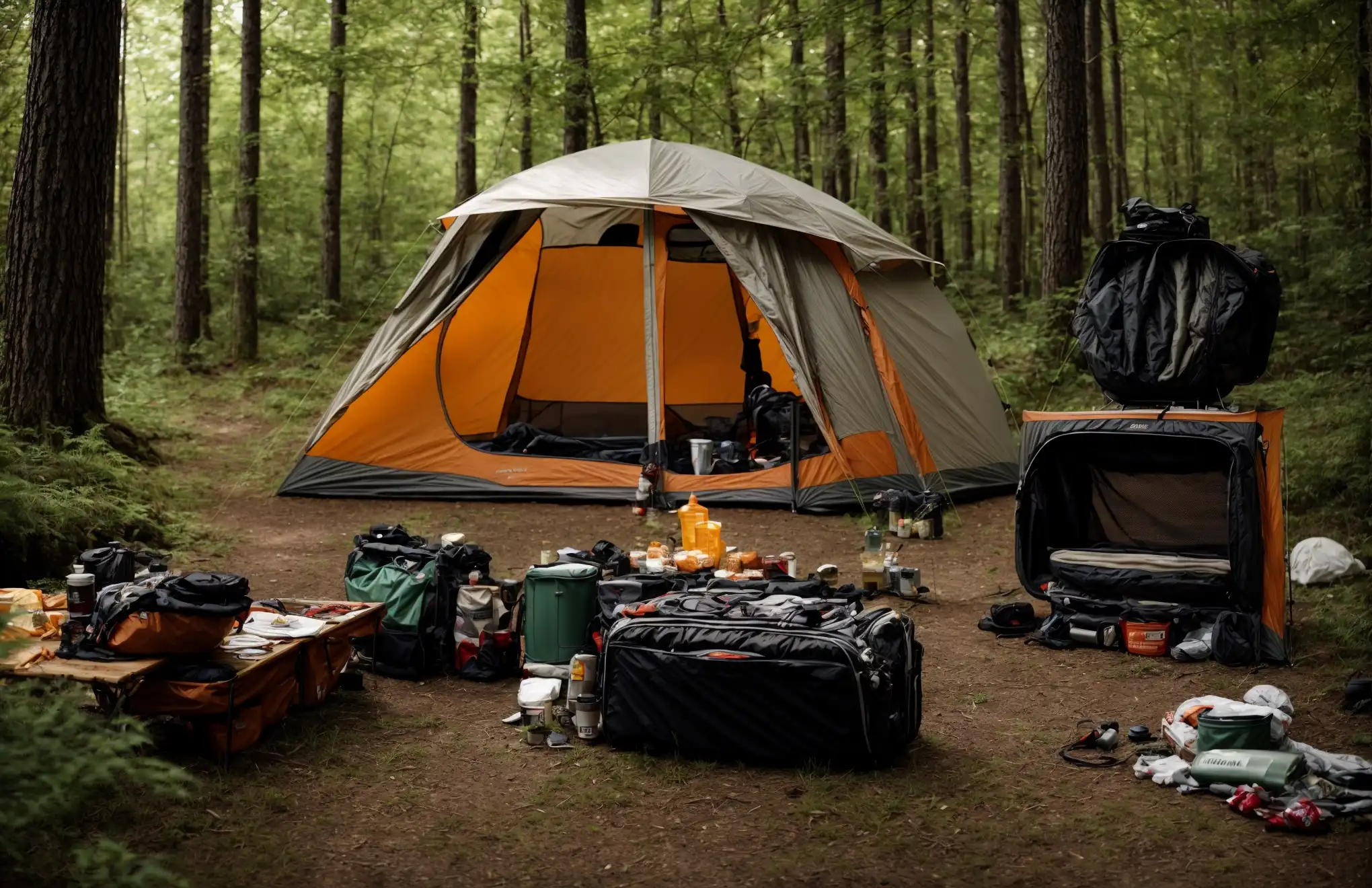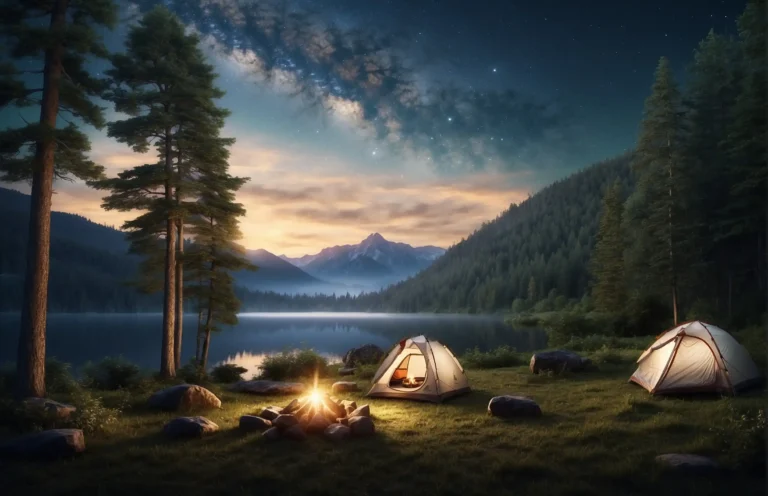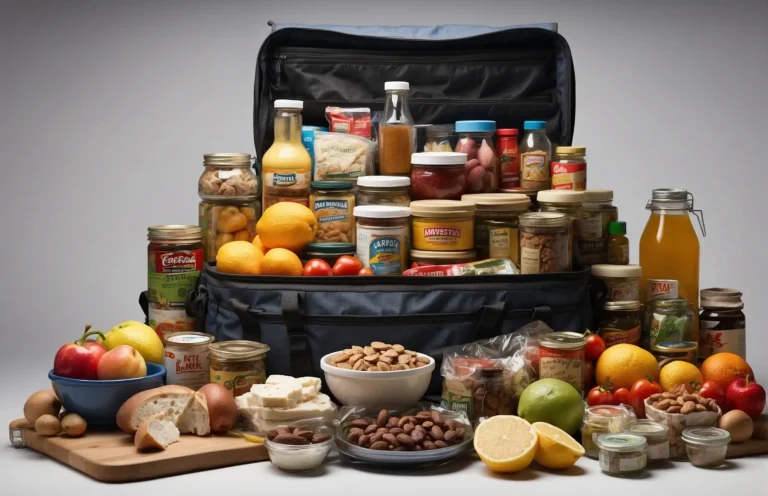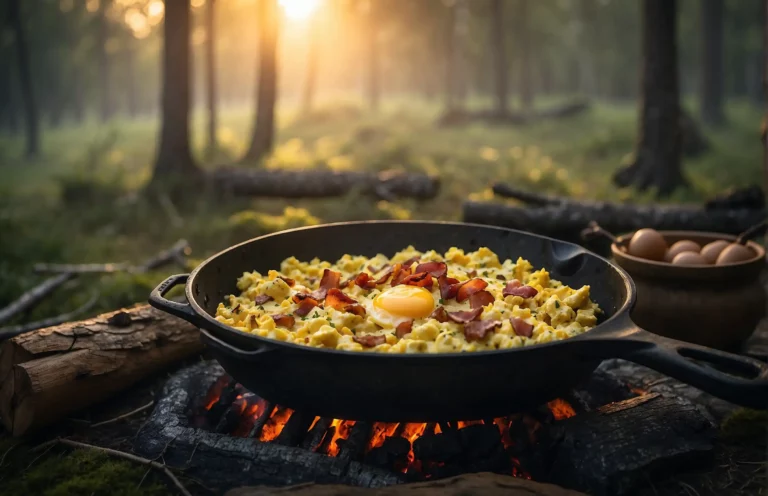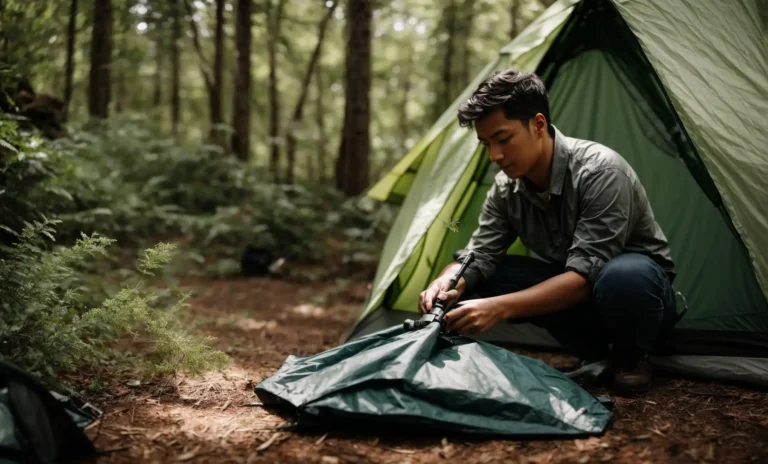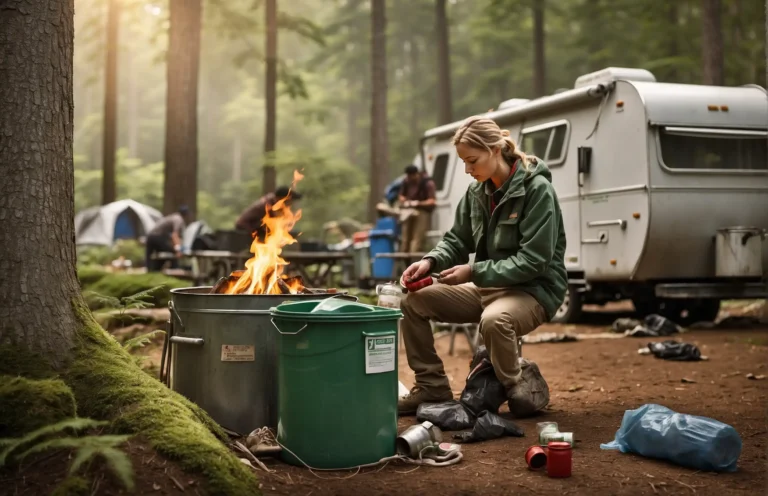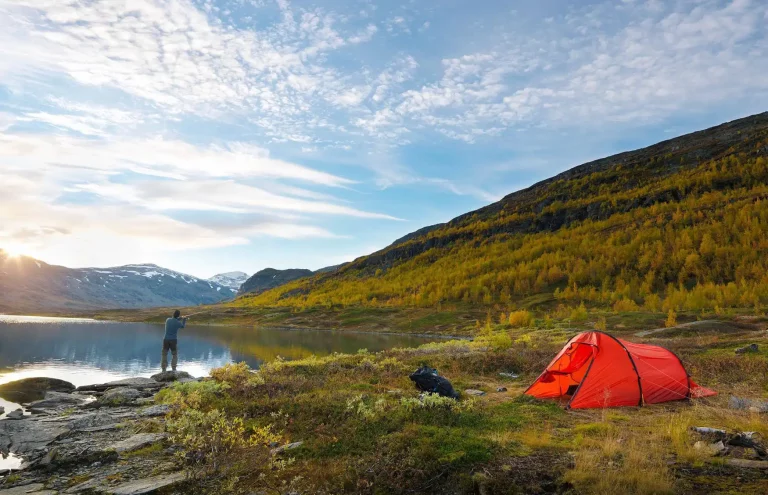What Not to Bring Camping: Know before headout
Do not bring valuables, perfumed products, or excessive electronics camping. Leave behind unnecessary items like raw meats without proper storage, non-biodegradable soaps, and large sound systems.
Embarking on a camping trip means embracing the outdoors and stepping away from the comforts of home. Camping trips are an opportunity to connect with nature, so it’s important to pack smart and consider the environment. This guide ensures you don’t overburden your pack with non-essentials or disturb the natural habitat.
Keeping your camping gear to the essentials enhances the experience and reduces the impact on the environment. Remember that what you carry should help you survive and enjoy, rather than burden your adventure. The right preparation contributes to a safe, enjoyable, and eco-friendly outdoor excursion. Streamlining your packing list makes setting up camp quicker, allowing more time to explore and relax in the wilderness.
Smart Camping: Packing Essentials Vs. Non-essentials
Embracing the great outdoors through camping demands more than just enthusiasm; it needs a strategic approach to packing. This balance between essentials and non-essentials can make or break the experience. Smart camping converges on bringing just what you need for comfort, safety, and convenience, allowing nature to provide the rest. It is about understanding the delicate interplay of just enough and too much. In this section, we navigate through the art of minimalist packing—ensuring you carry what’s necessary without burdening yourself with the superflous.
Understanding the Campsite Environment and Limitations
Every campsite comes with its own set of rules, resources, and restrictions. It’s important to research in advance to avoid overpacking. Campgrounds might restrict certain items to preserve the environment or due to safety concerns. Features like on-site water, fire pits, or bear-proof containers impact what gear comes with you. Areas with strict wildlife protocols may limit food storage options, calling for camping-specific containers. Adhering to these guidelines not only respects the environment but also shapes your packing strategy.
The Philosophy of Minimalism in Packing
Minimalism in camping isn’t about sacrifice; it’s a method to enhance your experience. This philosophy revolves around the question: “Do I really need this?” The minimalist approach prioritizes space, weight, and functionality. It’s about packing items that serve multiple purposes, cutting down on clutter and weight. By bringing less, you immerse more fully in the environment, move around with ease, and leave a smaller footprint.
Distinguishing Essential Gear From Superfluous Items
Knowing what constitutes as essential gear and what qualifies as unnecessary can transform a good camping trip into a great one. Essentials tend to include shelter, a reliable source of light, first aid supplies, food, water purification methods, and appropriate clothing. On the other hand, items like excessive electronics, multiple outfit changes, or bulky equipment often remain unused and add to the load. By carefully selecting items that fulfill basic needs, comfort, and safety, you ensure a streamlined and enjoyable outing.
The Case Against Overpacking: Avoiding Common Mistakes
Embarking on a camping trip often brings about the temptation to prepare for every possible scenario. This can lead to overpacking, a common pitfall that many campers fall victim to, especially those new to the experience. The idea that ‘more is better’ can actually detract from the overall enjoyment and practicality of your adventure. Understanding The Case Against Overpacking: Avoiding Common Mistakes is essential for anyone looking to embrace the serenity of nature without the burden of an overstuffed backpack.
The Consequences of a Heavy and Cluttered Campsite
A cumbersome load can transform what should be a light-footed trek into an arduous haul. Excessive gear not only weighs you down physically but can also create a cluttered and less manageable campsite:
- Reduced mobility: A bulky backpack can limit your ability to explore and enjoy your surroundings.
- Inefficiency: Sifting through unnecessary items consumes time that could be spent relishing the outdoors.
- Environmental impact: Overpacked sites typically lead to a higher footprint, going against the principle of leaving no trace.
Items That Seem Necessary But Aren’t
Identifying what to leave at home is crucial for a streamlined camping trip. Here’s a table of common culprits that appear essential but usually end up unused:
| Item | Reason to Leave Behind |
|---|---|
| Excessive Clothing | Layering strategically with a few versatile pieces is more effective than multiple outfits. |
| Gadget Overload | Minimize electronics to disconnect and save space; a phone and maybe a camera will suffice. |
| Luxury Items | Comforts like camp chairs and large pillows add bulk and aren’t always necessary. |
Learning From Experienced Campers: Tales of Overpacking
Hearing from those who have been on many trails can help prevent overpacking. Their stories often highlight lessons learned the hard way:
- Paring down to basics after lugging around a heavy tent that took up too much space.
- A realization that multi-functional tools like a Swiss Army knife can replace a plethora of single-use items.
- Discovering that being prepared means not just bringing everything, but knowing what you truly need.
Specific Items to Leave Behind When Heading Outdoors
Embarking on a camping trip connects you with the wilderness, but to fully embrace the natural experience, shedding some of the trappings of modern life is essential. Figuring out exactly what not to bring camping is just as important as packing the essentials. Overpacking is not only cumbersome, but it can also detract from your interaction with the outdoors. Maximizing both safety and enjoyment means leaving certain items at home. Let’s identify the specific things that should not make it into your backpack.
Categorizing Items: What Stays Home
Understanding which items are non-essentials for your outdoor adventure is paramount. Here’s a quick glance at various categories and examples of what to leave behind:
- Perfumes and scented lotions: Their strong smells attract wildlife.
- Non-biodegradable soaps: They harm the environment and local water sources.
- Valuables: Jewelry and expensive accessories are at risk of getting lost or damaged.
- Bulky clothing: They take up too much space; opt for layers instead.
- Heavy books: Consider an e-reader or enjoy nature as your entertainment.
- Excess food: Plan meals to avoid waste and lessen the load.
The No-Gos of Camping Tech: Gadgets to Avoid
In today’s tech-centric world, it’s tempting to bring along all our favorite gadgets. However, certain devices should stay at home to preserve the camping experience and reduce distractions:
| Gadget | Reason to Leave Behind |
|---|---|
| Laptops/Tablets | Vulnerable to damage and theft, and detract from outdoor engagement. |
| Drones | Noisy and can disturb wildlife, plus many parks have restrictions. |
| Portable TVs | Bulk and energy consumption make them impractical. |
| Hair Dryers | Excessive energy demands and rarely a necessity in nature. |
Why Certain Comfort Items Are Not Camp-Friendly
Comfort items, though seemingly harmless, can often become more of a hindrance than a help. Below are a few items usually considered as comforts that might not fit your camping lifestyle:
- Air mattresses: They can be heavy and require electric pumps.
- Furniture: Camp chairs are one thing, but full-on loungers add unnecessary weight.
- Multiple pairs of shoes: One durable pair of hiking boots and a set of camp shoes typically suffice.
- Excessive clothing: Pick versatile layers that can adapt to changing weather, instead of multiple outfits.
- Large pillows: Opt for an inflatable or compressible camping pillow instead.
By carefully considering each item’s necessity and practicality, campers ensure a comfortable yet unburdened experience that enhances their connection with the natural world.
Food and Beverage Missteps: What Not to Pack
Embarking on a camping trip means anticipating the thrills of the great outdoors, but it also involves smart packing – especially when it comes to food and beverages. Bringing the wrong items can turn an adventure into a hassle, or worse, a health hazard. To help you navigate your culinary choices for the wilderness, let’s discuss common missteps that could hinder your camping experience.
Perishables That Spoil the Fun
Avoiding perishables is essential for a worry-free camping experience. Certain food items are prone to spoil without refrigeration and can attract wildlife:
- Raw meat and fish
- Dairy products
- Soft cheeses and yogurts
- Cut fruits and vegetables
Instead, opt for non-perishable food items like:
- Canned tuna or chicken
- Hard cheeses
- Whole fruits with peels
- Pre-packaged salads
Overly Complicated Meals and Their Simpler Alternatives
Camping should not be about stressing over meal preparations. Stay away from overly complex recipes that require numerous ingredients and steps. Here are some simplified alternatives:
| Complex Meal | Simple Alternative |
|---|---|
| Gourmet pasta with fresh sauces | Pre-packaged pasta meals or ramen |
| Homemade pizza | Pita bread with jarred sauce and pre-shredded cheese |
| Elaborate BBQ spreads | Pre-cooked sausages or veggie skewers |
These alternatives will save you time and effort, allowing you to enjoy more of your camping trip.
Alcohol and Its Downsides in a Campsite Setting
Bringing alcohol on a camping trip has its downsides. It’s important to consider the impact on hydration, decision-making, and potential encounters with wildlife. Keep in mind the legal regulations of the area as well. Consider these non-alcoholic choices:
- Herbal teas
- Fruit-infused water
- Non-alcoholic beers or wines
- Sparkling beverages
They can be refreshing alternatives and help you stay hydrated and alert during your outdoor adventures.
Safety and Etiquette: Considerations Beyond Personal Comfort
Embarking on a camping adventure is about more than just enjoying the great outdoors; it’s a commitment to preserving the environment and maintaining harmony among fellow campers. It’s crucial to balance personal comfort with safety and etiquette, ensuring that the impact on nature is minimal. This means rethinking the items you pack. Certain gear and behaviors can be detrimental to wildlife, create unnecessary risks, or disrupt the peace of the camping area. Let’s explore what not to bring camping with respect to these broader considerations.
The Impact of Your Gear on Nature and Wildlife
Packing for a camping trip isn’t just about what you’ll need; it’s about what the environment doesn’t need. A fundamental rule of camping is to leave no trace, and that includes not bringing items that could negatively affect the wildlife around you. Consider omitting:
- Plastics and non-biodegradable materials that can pollute the environment.
- Excessively bright or white lights that could disorient nocturnal wildlife.
- Food with strong odors that might attract animals to your campsite.
- Noisy electronic devices that could disturb animal habitats.
Avoiding Potential Fire Hazards
Wildfires are a catastrophic risk when camping, and certain items can increase the chances of an accidental ignition. To mitigate the risk of fire, avoid bringing:
- Fireworks or any form of pyrotechnics.
- Flammable liquids outside of designated fuel containers for stoves.
- Excessively long charging cables or faulty electronic devices that could overheat.
Always check the fire rules and regulations of your camping area before starting any kind of flames, even for cooking or warmth.
Respectful Camping: Understanding Site-sharing and Noise Control
Being mindful of your camping neighbors is key to ensuring that everyone has a pleasant experience. To uphold the peace:
- Select a campsite that’s an appropriate distance from other campers to avoid disturbances.
- Keep voluminous gear and loud equipment, such as large speakers or generators, at home.
- Minimize noise at night by setting up quiet zones where people can sleep without interruption.
Understanding site-sharing involves recognizing that the area you occupy should be left as pristine as when you arrived, adhering to guidelines that ensure mutual respect among campers.
Read more: How to Use Dutch Oven Camping
Conclusion
As you pack for your outdoor adventure, remember to keep it simple and safe. Avoid overloading with unnecessary items that can dampen the experience. Embrace nature’s simplicity and focus on essentials to ensure a memorable and hassle-free camping trip.
Outdoor Awaits is not just about camping, it’s about creating memories. Start in our Learning section. Enjoy the great outdoors without the clutter!

